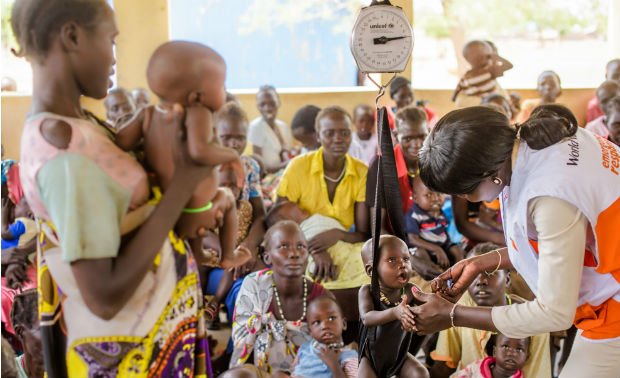After a trip to Kuajok, South Sudan, Washington Post Opinion Writer Michael Gerson has a hard time imagining a place more “physically and psychologically removed from the world economy”.
In a recent article titled, “Help for the world’s ‘broken places’’, he paints a bleak picture of a place where wealth and status is measured in cattle, where malnourished children have arms skinnier than the opening of a plastic water bottle, and where a 15-year-old girl is more likely to die in childbirth than complete school.
It’s a gruesome image, but one that must be faced if poverty is to be truly eradicated. Gerson says that it’s the hard-to-reach corners of poverty that the next phase of development must address:
The President of World Vision, Rich Stearns, agrees as the organization looks to push more operations into these fragile states. Stearns is quoted in the piece saying “Fragile states are the future of poverty. If we are not in these places, we are irrelevant.”

One of the biggest challenges that World Vision faces in trying to generate relief efforts for these situations is how “man-made conflict does not evoke the same sympathy as natural disaster,” according to Stearns. For instance, World Vision has been able to raise approximately $8 million towards the Nepal earthquake in just five weeks, while during the four years of the Syrian crisis, they have only been able to reach $2.7 million.
Gerson traveled to South Sudan and brought back a story that is hard to read about. But the point he aims to make is one we must all face as global citizens: we can’t ignore parts of the world just because it’s hard to get there or difficult to see, these fragile situations must be addressed within braoder efforts if the world is to see an end to poverty.